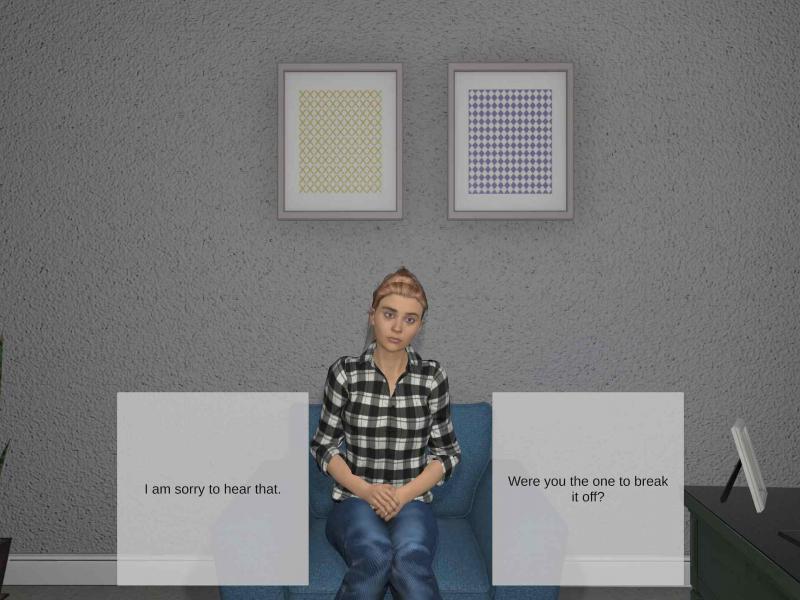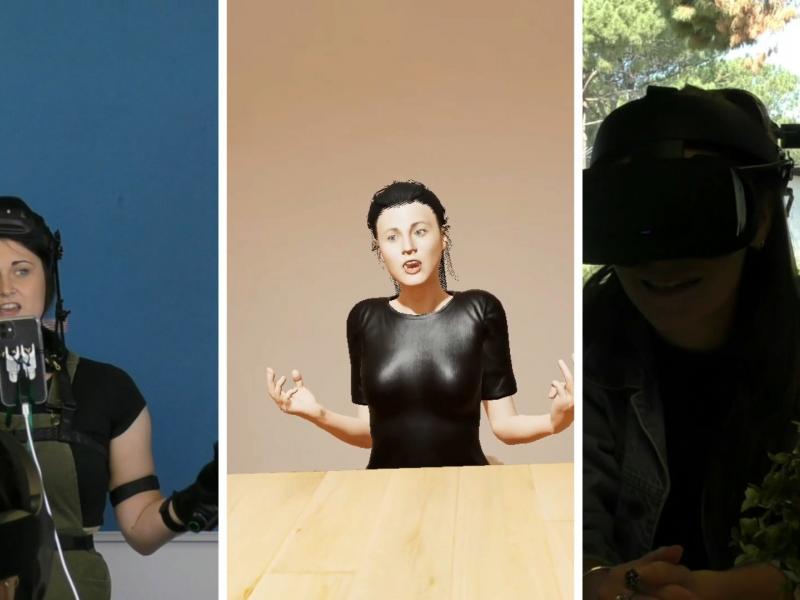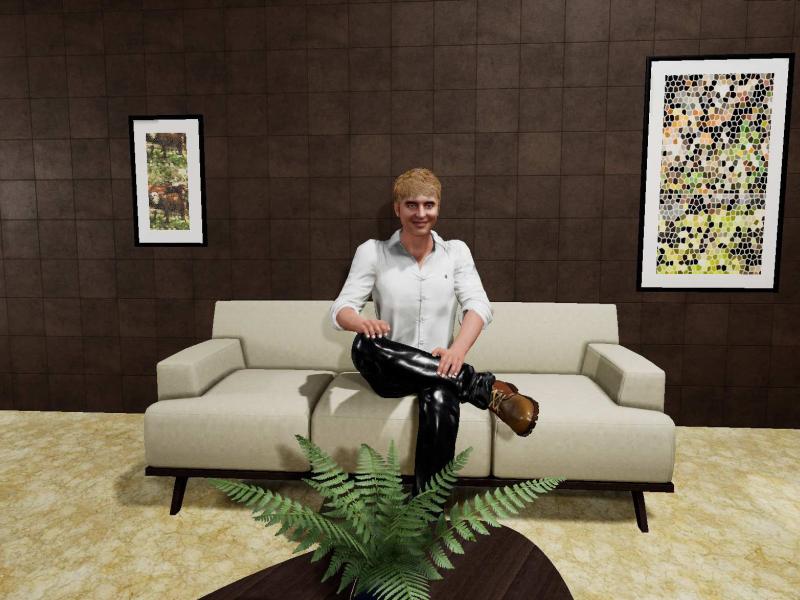Dr. Rogers holds a PhD in psychology specializing in 'interpersonal communication.' With the help of his students, he has been conducting some experiments with motion capture technology (both face, and body) and communication in VR in real-time.
As a person who has pursued a career in psychology, specifically 'interpersonal communication', what role can motion capture and virtual reality technology play in helping to further develop human behavioral studies?
The potential is immense. The creation of interactive virtual experiences enables the possibility for a huge range of potential studies that would not be achievable otherwise. You can create virtual experiences so that you can study human behaviour in more natural contexts, while still having a high level of experimental control. My prediction is that virtual reality is going to have a profound impact on the discipline of psychology in the coming years and facilitate a host of new exciting research findings. At the moment the main project I am focused on is investigating people's experiences communicating with a character in VR where the character is being puppeteered in real-time by another person (who is wearing the Perception Neuron suit for body tracking, and face-tracking via iPhone and iClone Faceware for mocap.)
Could you elaborate on the idea that the current Covid-19 situation is showing us that future development of VR communication technology is a good thing for society?
COVID-19 is obviously having a profound impact on the world, and the way we do things. There has been a big shift into using online video chat programs for work, and for keeping in touch with family and friends. I think that VR communication technology has the potential to be better than your standard video-chat, and in general I think it is going to be a good thing for society as a new mode of communication. The COVID-19 situation may lead to a faster development of VR communication technology than what might have occurred otherwise.
Are there any VR experiments you are currently imagining? Any type of technology you wish you had access to? If so, why?
I have mentioned the real-time VR communication study I am running. Also a couple of other example projects I am working on at present are creating virtual counselling experiences for psychology students to learn about different psychological conditions and creating virtual mock crime experiences so that we can better investigate and try to improve criminal interviewing techniques. A couple of things I would love to have in my lab is some additional gear for more immersive VR experiences like the 360-degree treadmills, and wearable technology that can provide more haptic sensations for the user. The biggest thing on my wish list is for someone to develop technology so that we can fully motion-capture a person's face while they are wearing a VR-headset. This would enable us to research communication where both parties are in VR simultaneously in real-time. At present we are limited to one person being in VR while the other person they are interacting with not being in VR.
Do you think this technology can help bring humanity closer together or should we be cautious?
I think that technology-mediated communication that is currently in use is generally associated with less inter-personal closeness compared to when we interact with others who are physically present. As the technology continues to develop, using motion capture technology in tandem with virtual reality technology has the potential to provide communicative experiences that might be able to provide us with the same level of inter-personal closeness as a 'traditional' face-to-face experience. I think this will help to bring humanity closer. However I do also feel that we should always progress with an air of caution, and think about how people might want to use the technology for bad things, so we can deal with it in a proactive way rather than a reactive way.
What do you imagine the therapy session of the future to be?
I imagine that one option for the therapy session of the future will be in fully 3D immersive virtual reality where you can interact with your therapist in a way that will feel like you are there with them, but still having more privacy than you might otherwise feel compared to if were really there with them. That is, you can log on into the virtual world being represented by an avatar of your choosing, in a virtual room of your choosing (so that you can feel as comfortable as possible), interacting with them in real-time.
As a person who has pursued a career in psychology, specifically 'interpersonal communication', what role can motion capture and virtual reality technology play in helping to further develop human behavioral studies?
The potential is immense. The creation of interactive virtual experiences enables the possibility for a huge range of potential studies that would not be achievable otherwise. You can create virtual experiences so that you can study human behaviour in more natural contexts, while still having a high level of experimental control. My prediction is that virtual reality is going to have a profound impact on the discipline of psychology in the coming years and facilitate a host of new exciting research findings. At the moment the main project I am focused on is investigating people's experiences communicating with a character in VR where the character is being puppeteered in real-time by another person (who is wearing the Perception Neuron suit for body tracking, and face-tracking via iPhone and iClone Faceware for mocap.)
Could you elaborate on the idea that the current Covid-19 situation is showing us that future development of VR communication technology is a good thing for society?
COVID-19 is obviously having a profound impact on the world, and the way we do things. There has been a big shift into using online video chat programs for work, and for keeping in touch with family and friends. I think that VR communication technology has the potential to be better than your standard video-chat, and in general I think it is going to be a good thing for society as a new mode of communication. The COVID-19 situation may lead to a faster development of VR communication technology than what might have occurred otherwise.
Are there any VR experiments you are currently imagining? Any type of technology you wish you had access to? If so, why?
I have mentioned the real-time VR communication study I am running. Also a couple of other example projects I am working on at present are creating virtual counselling experiences for psychology students to learn about different psychological conditions and creating virtual mock crime experiences so that we can better investigate and try to improve criminal interviewing techniques. A couple of things I would love to have in my lab is some additional gear for more immersive VR experiences like the 360-degree treadmills, and wearable technology that can provide more haptic sensations for the user. The biggest thing on my wish list is for someone to develop technology so that we can fully motion-capture a person's face while they are wearing a VR-headset. This would enable us to research communication where both parties are in VR simultaneously in real-time. At present we are limited to one person being in VR while the other person they are interacting with not being in VR.
Do you think this technology can help bring humanity closer together or should we be cautious?
I think that technology-mediated communication that is currently in use is generally associated with less inter-personal closeness compared to when we interact with others who are physically present. As the technology continues to develop, using motion capture technology in tandem with virtual reality technology has the potential to provide communicative experiences that might be able to provide us with the same level of inter-personal closeness as a 'traditional' face-to-face experience. I think this will help to bring humanity closer. However I do also feel that we should always progress with an air of caution, and think about how people might want to use the technology for bad things, so we can deal with it in a proactive way rather than a reactive way.
What do you imagine the therapy session of the future to be?
I imagine that one option for the therapy session of the future will be in fully 3D immersive virtual reality where you can interact with your therapist in a way that will feel like you are there with them, but still having more privacy than you might otherwise feel compared to if were really there with them. That is, you can log on into the virtual world being represented by an avatar of your choosing, in a virtual room of your choosing (so that you can feel as comfortable as possible), interacting with them in real-time.



